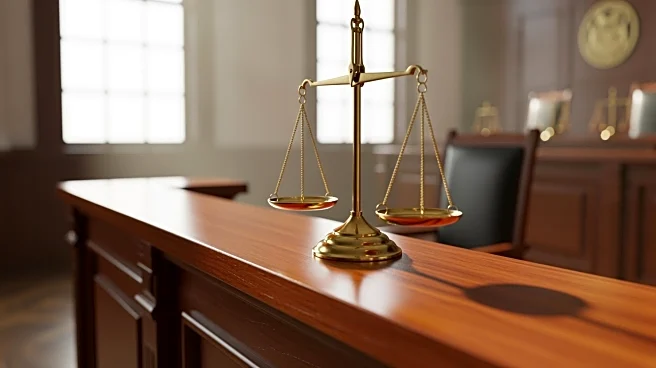What's Happening?
Attorneys representing former FBI Director James Comey and New York Attorney General Letitia James have filed a motion to dismiss the criminal indictments against them, arguing that the prosecutor, Lindsey Halligan, was unlawfully appointed. Halligan, a former insurance
lawyer and White House aide, was appointed as interim U.S. Attorney for the Eastern District of Virginia by President Trump, replacing a previous appointee. The defense claims Halligan's appointment violates the Constitution's Appointments Clause, as it was made without Senate confirmation and beyond the 120-day limit for interim appointments. U.S. District Judge Cameron Currie is reviewing the case and has expressed skepticism about the government's actions, particularly the rushed appointment of Halligan and the subsequent indictments against Comey and James.
Why It's Important?
The case highlights concerns about the potential misuse of the Justice Department for political purposes. If the court rules in favor of Comey and James, it could set a precedent limiting the executive branch's power to appoint interim prosecutors without Senate confirmation. This could impact future appointments and the balance of power between the executive and judicial branches. The outcome may also influence public perception of the Justice Department's independence and integrity, especially in politically sensitive cases. A ruling against the government could lead to increased scrutiny of other appointments made under similar circumstances.
What's Next?
Judge Currie is expected to make a ruling before Thanksgiving. If the court finds Halligan's appointment invalid, it could lead to the dismissal of the indictments against Comey and James. This decision may prompt further legal challenges regarding the appointment process of interim U.S. attorneys. Additionally, the ruling could influence ongoing and future cases involving politically charged prosecutions, potentially affecting the careers and reputations of those involved.
Beyond the Headlines
The case underscores the ethical and legal challenges of appointing prosecutors in politically sensitive cases. It raises questions about the potential for executive overreach and the importance of maintaining judicial independence. The situation also highlights the broader implications for the rule of law and the checks and balances within the U.S. government.















